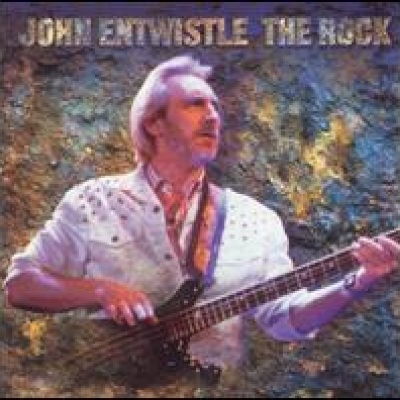
The Rock
by Mark DemingOne could argue that John Entwistle's instrumental prowess on the bass and mordant lyrical humor in tunes like "Boris the Spider" and "Whiskey Man" had nearly as strong an impact on the Who's early work as Pete Townshend's input, but both men's work grew and changed significantly with the passing of time. While Townshend was always determined to remain on the cutting edge of what mattered in rock, Entwistle evolved from the cool guy who never moved on-stage to the cheesy old geezer in the tight polyester pants who never moved on-stage, and in the 1980s his solo work reflected less of the witty hard rock that dominated Mad Dog or Whistle Rymes and more of the hard rock bombast that was filling arenas in America. After the disappointing commercial reception of his 1981 solo effort, Too Late the Hero, and his difficulties scoring a record deal after the Who broke up, Entwistle was determined to make an album that would sell beyond his cult following, and The Rock not only didn't sound like a typical Entwistle album, he didn't even sing on it (believing his voice was part of what put folks off) and wrote only four of its 11 tracks. Elsewhere, former Prism vocalist Henry Small co-wrote the other seven tunes (primarily with guitarist Devin Powers) and took over lead vocals, with Gene Block also handling guitar, Zak Starkey playing drums, and Adrien Cook on keyboards. Ultimately, the results resemble Tesla, Extreme, or other bands on the (relatively) more intelligent side of the 1980s hair metal scene than anything the ostensive leader did with the Who. There's no questioning the technical skill of the performances -- this band sounds tight and expert throughout, and Entwistle and Starkey are a mighty rhythm section -- but most of Small's songs are a mass of clichés and the guitar and keyboard figures firmly date this album as a product of the mid-'80s (it was recorded in 1986, but legal issues with Entwistle's record company kept The Rock on the shelf for ten years). You can't blame Entwistle for wanting his solo work to appeal to an audience as much as the Who's music has, but The Rock trades his more distinctive work for faceless cookie-cutter hard rock, and there's no denying he could do better.
